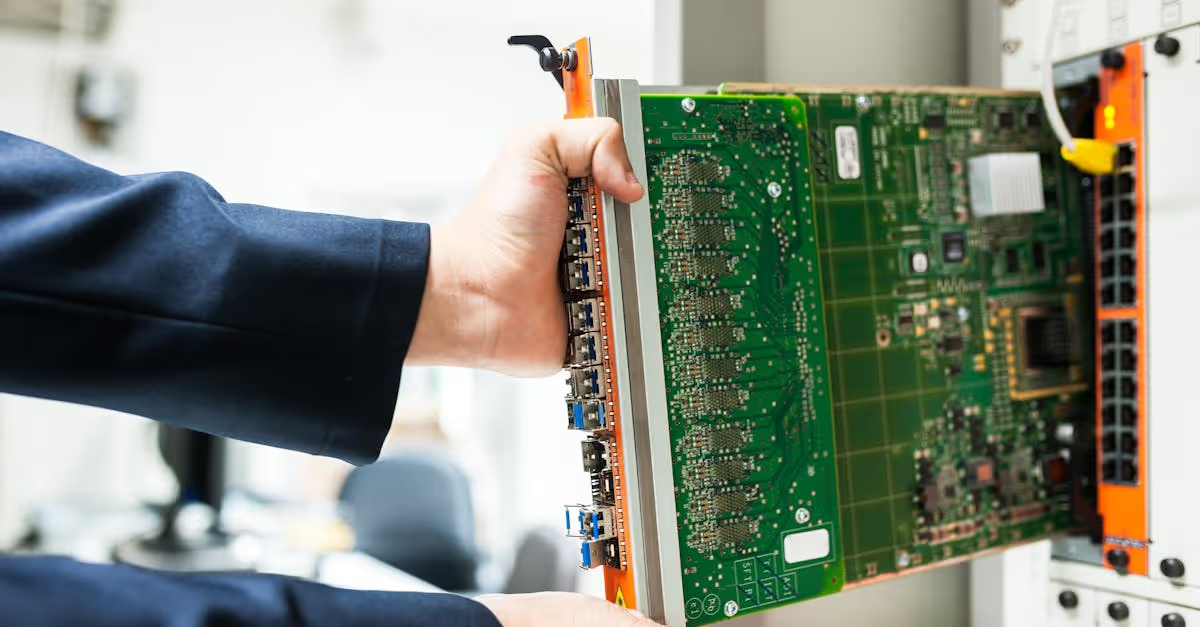Key Takeaways
- Importance of Pool Heaters: Nearly 70% of pool owners view heaters as essential for year-round swimming comfort.
- Types of Heaters: Familiarize yourself with the options: gas heaters for quick heating, electric heat pumps for energy efficiency, and solar heaters for eco-friendly solutions.
- Maintenance Matters: Regular upkeep, such as filter cleaning and prompt repairs, extends heater lifespan and prevents costly breakdowns.
- Energy Efficiency Benefits: Choosing energy-efficient heaters can significantly reduce operational costs, benefiting both your budget and the environment.
- Smart Technology Integration: Many modern heaters feature smart technology that allows control via mobile devices, enhancing convenience and management.
- Professional vs. DIY Installation: Weigh the benefits of hiring professionals against DIY options to ensure proper installation and compliance with local codes.
When it comes to enjoying our pools year-round, having a reliable heater is essential. Did you know that nearly 70% of pool owners consider a pool heater a must-have for comfortable swimming? Whether we're looking to install a new system or repair an existing one, understanding our options can save us time and money while enhancing our swimming experience.
Overview of Pool Heaters
Pool heaters play a crucial role in maintaining comfortable swimming conditions year-round. Various types of heaters exist, including gas, electric, and solar options. Understanding these options helps us select the right one for our needs.
Gas Heaters
Gas heaters use natural gas or propane to generate heat quickly. They operate efficiently for heating pools in colder climates but might incur higher operational costs due to gas prices. Ideal scenarios for gas heaters include larger pools or when fast heating is crucial.
Electric Heat Pumps
Electric heat pumps extract heat from the air and transfer it to the pool water. They work best in moderate climates, offering energy efficiency and low operational costs. For homeowners committed to eco-friendly choices, electric heat pumps serve as a wiser option.
Solar Heaters
Solar heaters utilize solar panels to capture sunlight, converting it into heat for the pool. They represent the greenest choice, reducing energy costs substantially. However, the efficiency of solar heaters depends on sunlight availability, making them perfect for sunny regions.
Hybrid Systems
Hybrid heaters combine gas and electric technologies. These systems allow us to switch between methods based on cost and efficiency, offering versatility. For those unsure about committing fully to one type, hybrid systems provide a balanced approach.
Maintenance and Repairs
Regular maintenance enhances longevity. Cleaning filters, checking connections, and keeping an eye on the heater's performance are essential steps. Timely repairs can save us from costly breakdowns. Understanding our pool heater allows us to quickly diagnose minor issues before they escalate.
Energy-Efficient Options
Choosing energy-efficient heaters significantly lowers operational costs. Models fitted with the latest technologies consume less energy while delivering effective heating. Integrating field service management software can streamline maintenance schedules, offering cost efficiency while enhancing the overall experience.
Smart Technology Integration
Newer pool heaters often come with smart technology features, allowing us to control them via mobile devices. This integration creates opportunity for enhanced scheduler management—optimizing technician routes for maintenance visits while fostering customer engagement through service business apps.
Conclusion
Pool heaters contribute significantly to our swimming experience. By selecting the right type, performing regular maintenance, and leveraging smart technologies, we can enjoy comfortable waters all year. We’re not just swimming; we’re participating in an unforgettable community experience.
Types of Pool Heaters
Understanding pool heater options helps us make informed decisions for efficient installation and repair. Here are three popular types of pool heaters.
Electric Pool Heaters
Electric pool heaters are practical for smaller pools or spas. They convert electricity directly into heat, making them easy to operate. While they may lack the energy efficiency of heat pumps or solar options, they still serve well for quick warmth. Installation involves connecting to the plumbing and ensuring proper electrical wiring. Notably, electric heaters can deliver reliable performance although their operating costs can stack up over time, especially if we heat larger volumes of water.
Gas Pool Heaters
Gas pool heaters excel at quickly raising water temperatures, making them ideal for colder climates. Their ability to deliver heat swiftly makes them a popular choice among pool owners. Installation entails connecting the heater to an existing gas supply line, ensuring a steady fuel source. While they heat faster than electric options, gas pool heaters can incur higher operational expenses due to fluctuating gas prices. Balancing speed and cost plays a crucial role in our heating decisions.
Solar Pool Heaters
Solar pool heaters represent the eco-friendly choice, utilizing sunlight to warm our pools. By installing panels on rooftops or in open areas, we can harness the sun’s energy, significantly cutting down on energy expenses. These systems require an up-front investment but offer long-term savings through reduced utility bills. While they depend on weather conditions, integrating a solar heater with a backup system, like gas or electric heaters, enhances functionality. This flexibility allows us to enjoy our pools without compromise.
By exploring these heater types, we can find the right fit for our heating needs and budget.
Repairing Pool Heaters
Pool heaters may experience various issues that require timely repairs to maintain comfort during swim season. Addressing these problems promptly helps us enjoy our pools fully, turning our backyard into a summer paradise.
Common Issues and Solutions
Problems with pool heaters often include inconsistent heating or no heat production, unusual noises, and leaks. For inconsistent heating, we recommend checking thermostat settings and verifying water flow. If those tweaks don’t solve the problem, internal mechanical issues could be at play. Odd noises like banging or grinding often indicate a dirty filter or damaged parts. Cleaning the filter usually makes a difference. However, persistent sounds may require expert intervention. Gas heaters can also produce leaks, typically around fittings or valves. Tightening connections can often resolve leaks, but further complications may need a professional's touch.
When to Call a Professional
Recognizing when to call for help can save us from chaos. If a pool heater produces a burning smell, significant temperature fluctuations, or leaks that cleaning can’t fix, it’s time to seek professional assistance. When we notice unusual changes in energy costs, they might signal inefficiencies that a technician can diagnose and remedy. Regular maintenance plays a vital role here; a yearly check-up can catch issues early, preventing them from becoming expensive repairs. The average lifespan of a heater ranges from 5 to 15 years, depending on usage and maintenance. Knowing our heater’s age helps us decide whether to repair or replace.
By staying alert to these common issues and knowing when to reach out for help, we keep our pool experience safe and enjoyable, ensuring our community of pool lovers can swim happily all season long.
Installing Pool Heaters
Installing a pool heater involves several essential steps. Following a structured approach leads to a successful setup and efficient operation.
Steps for DIY Installation
- Select the Right Spot: Look for a location that allows simple access for tools and equipment. Choose an area clear of debris and obstacles for safety. The heater’s position should permit direct connections for water and gas lines.
- Prepare the Equipment Pad: Dig a hole for the pad that’s big enough for all components but stable to prevent shifting. Place the electrical junction box above where the piping will be buried.
- Connect Water and Electrical Lines: Use appropriate fittings to connect the heater to the pool’s plumbing system. Ensure that all connections are tight. Follow local building codes for electrical connections, maximizing safety.
- Test the System: After installation, check the connections and turn on the heater. Monitor for leaks or unusual sounds. Adjust settings according to the manufacturer’s instructions.
Hiring a Professional Installer
Hiring a professional may benefit those uncomfortable with DIY projects. Professionals bring expertise and save time. They ensure compliance with local codes and building regulations.
- Research Qualified Technicians: Look for licensed technicians with positive reviews. Use scheduling tools to book appointments that fit our schedule.
- Gather Estimates: Collect quotes from multiple installers. Comparing costs helps determine what fits our budget while maintaining quality.
- Discuss Options: Ask the installer about different heater types. Some may offer energy-efficient solutions. Understanding the benefits helps make informed decisions.
- Post-Installation Support: Confirm if the technician offers maintenance services. Regular upkeep prolongs the heater’s life and optimizes performance.
Choosing between DIY installation and hiring a pro depends on comfort level and project complexity. Community knowledge can guide our choices, so chatting with neighbors about their experiences provides valuable insights.
Energy-Efficient Options
Energy-efficient pool heaters offer eco-friendly choices that save money and enhance swimming experiences. Exploring these options highlights their benefits and guides us in choosing the right model.
Benefits of Energy-Efficient Heaters
Energy-efficient pool heaters provide significant advantages, making them a popular choice.
- Lower Operational Costs: They cut electricity and fuel bills, saving us money over time. Electric heat pumps and solar heaters utilize off-peak energy resources, reducing expenses.
- Environmental Impact: Choosing solar heaters uses renewable energy from the sun. This decision helps to lower carbon footprints and supports a sustainable lifestyle.
- Extended Swimming Season: Using these heaters allows us to enjoy swimming for several weeks or months longer than without them. Electric heat pumps warm up the pool effectively, especially in mild climates.
- Longevity: Electric heat pumps, with lifespans of 10 to 20 years, offer reliable heating solutions. Their durability means fewer replacements and less waste.
Tips for Choosing an Energy-Efficient Model
Choosing the right energy-efficient pool heater requires careful consideration. Let’s focus on key factors to enhance our experience.
- Climate Fit: Electric heat pumps excel in moderate climates, while solar heaters thrive in sunny areas. Evaluating our local weather conditions helps us make informed decisions.
- Budget: We need to assess our initial investment versus long-term savings. While solar heaters require higher upfront costs, they pay off with minimal operational expenses.
- Size and Capacity: Selecting a heater suited for our pool size is vital. Oversized or undersized heaters lead to inefficiencies and increased costs.
- Smart Features: Many modern heaters come equipped with mobile controls. These features allow us to manage settings from our smartphones, enhancing convenience.
- Warranty and Support: A strong warranty signifies manufacturer confidence. We should confirm access to support for maintenance needs, boosting long-term satisfaction.
Conclusion
Investing in the right pool heater is essential for maximizing our swimming experience. By understanding the various options available and prioritizing energy efficiency, we can enjoy comfortable water temperatures while minimizing operational costs. Regular maintenance and prompt repairs are key to extending the lifespan of our heaters, ensuring they function optimally when we need them most.
Whether we choose a gas, electric, or solar heater, we should consider our unique needs and local climate. Embracing smart technology can further enhance our pool experience, allowing us to control our heaters with ease. With the right approach, we can create a welcoming oasis for family and friends to enjoy all year round.
Frequently Asked Questions
What are the main types of pool heaters?
There are three primary types of pool heaters: gas, electric heat pumps, and solar heaters. Gas heaters heat water quickly and are great for colder climates but can be costly. Electric heat pumps are energy-efficient and best for moderate climates. Solar heaters are eco-friendly, using sunlight for warmth, providing long-term savings after initial investment.
How do I maintain my pool heater?
Regular maintenance includes checking and cleaning filters, inspecting the thermostat, and ensuring all connections are secure. Schedule yearly professional inspections to catch potential problems early and extend the lifespan of your heater.
When should I call a professional for pool heater repairs?
Call a professional if you notice burning smells, significant temperature fluctuations, or persistent leaks. If you’re unsure about troubleshooting, a certified technician can provide expert guidance and ensure safe repairs.
What benefits do energy-efficient pool heaters offer?
Energy-efficient pool heaters can lower operational costs, reduce environmental impact, and prolong the swimming season. They also tend to have a longer lifespan, making them a wise investment for pool owners.
How can I choose the right pool heater for my needs?
Consider factors like your climate, budget, pool size, capacity, and desired features when choosing a pool heater. Research energy-efficient options and warranty support to find the best fit for your pool's requirements.






